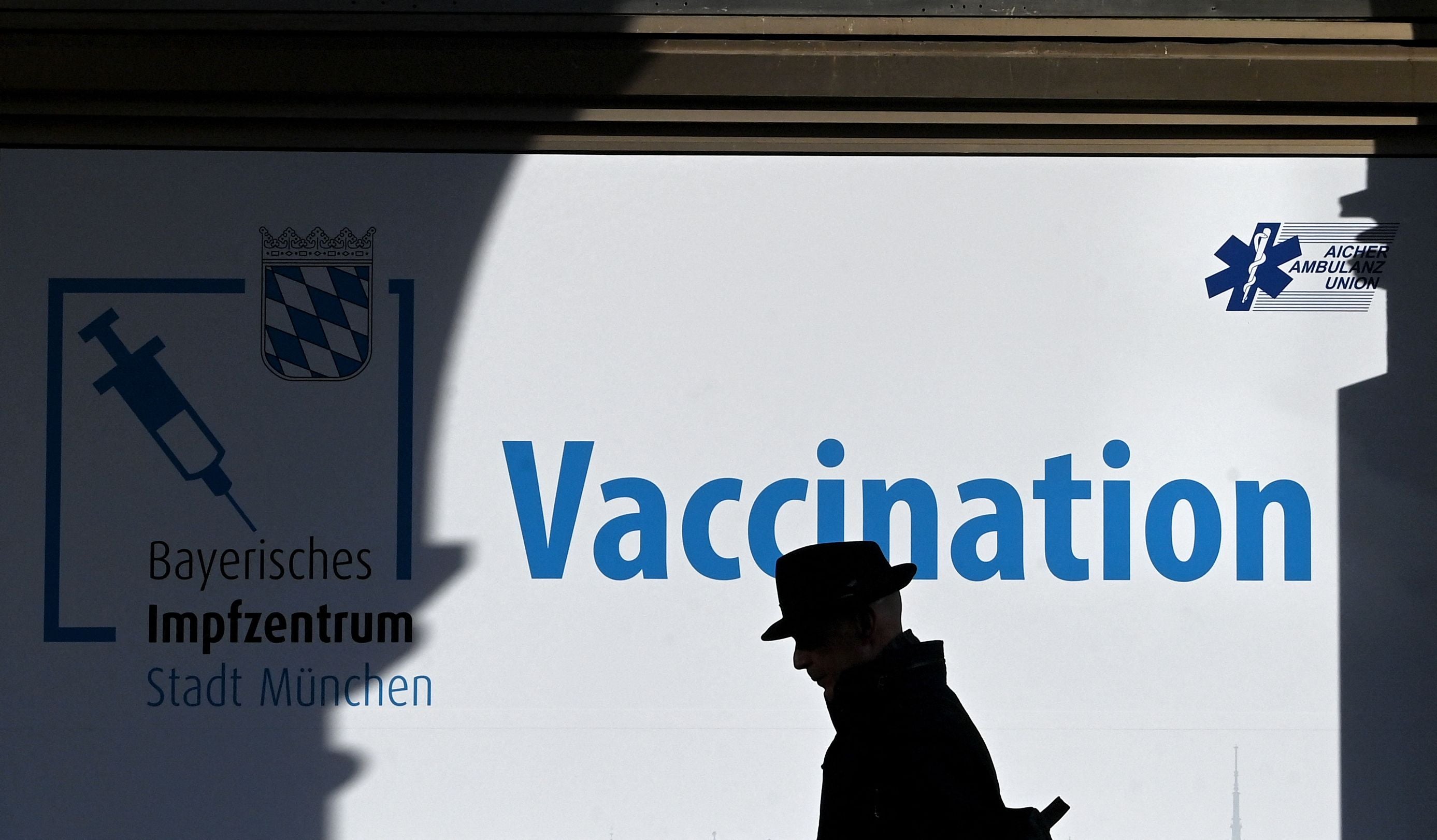Germany warned Covid death toll could double as millions remain unvaccinated
More than 97,000 people in Germany have so far died from Covid

With a third of its population unvaccinated and millions stubbornly unwilling to get inoculated, a vulnerable Germany has been hit hard by a record-breaking rise in Covid infections – an ominous surge that has filled hospitals amid a dire forecast that the death rate could soon double.
The Robert Koch Institute said on Thursday that a record 50,196 people had been infected in the previous 24 hours, amounting to 249 new infections per 100,000 people. It was the fourth straight daily record and up sharply from 39,676 new infections set a day earlier. It was also nearly double the 33,949 infections recorded a week ago. A total of 97,198 people have died in Germany from Covid, including 235 on Wednesday.
“We’re worse off than we were a year ago… and we’re now facing a real emergency situation,” said Germany’s leading virologist Christian Drosten in his daily podcast. He predicted Germany could end up with at least another 100,000 Covid-related deaths if the country doesn’t tighten protective measures and improve its low vaccination rates.
“We’ve got 15 million people who actually could have been and should have been vaccinated by now,” said Drosten, referring to the 30 per cent of German adults who have declined government invitations for free shots. “The way out of this pandemic is so obvious. We’ve got to close the vaccination gap.”
Vaccine hesitancy has long been a problem in Germany – along with neighbouring German-speaking populations in Austria and Switzerland, where between 30 and 34 per cent of the populations remain unjabbed. Unsurprisingly, case numbers are rising sharply in all three countries right now. The German government hoped that 85 per cent of its population would be vaccinated by now but is far below that target, stalled at 67 per cent.
Germany was hailed for initial success in containing the pandemic and shielding its public from higher death rates seen elsewhere.
But when it comes to vaccination rates, Germany lags far behind the UK, France and Spain, where about 80 per cent of the population have been vaccinated.
In Germany the anti-vaxx movement has been especially vocal, fuelled by conspiracy theorists, “Querdenker” (mavericks) demonstrations, and the far-right Alliance for Germany (AfD) party – although their co-leader Alice Weidel announced on Thursday she has been infected and will stay in quarantine.
Famous figures such as pop star Nina and Bayern Munich footballer Joshua Kimmich have expressed doubts in public about the safety and efficacy of vaccinations. Scepticism about drugs have lingered for decades in Germany, where memories of the birth defects from the “Contergan” or Thalidomide scandal in the late 1950s remain strong.
A growing chorus of political leaders and ethics experts are calling for mandatory vaccinations for medical and nursing home staff members.
“We’ve got to get the country in shape for the coming winter,” said Olaf Scholz, the country’s designated chancellor, in a speech in parliament on Thursday. “The virus is still among us and is a threat to the health of all our citizens.”
While interior minister Horst Seehofer, a 72-year-old with a history of heart problems, announced he was cancelling all in-person meetings and events, the state premier of hard-hit Saxony in eastern Germany, Michael Kretschmer, said Germany should cancel all its popular Christmas markets because hospitals were reaching their capacity limits.
“You just can’t imagine how anyone could be standing outside having a good time at a Christmas market this year and sipping mulled wine while medical staff in hospitals are going all out with their last reserves to keep people alive,” said Kretschmer.
Even though most German lawmakers are focused on putting together a new coalition government by the end of November after September’s elections, the newly formed centre-left coalition proposed a draft law on Thursday to reintroduce free Covid testing and mandatory daily testing for staff and visitors at nursing homes.
The one consolation in Germany is that the number of deaths has fallen – experts say it’s thanks to vaccinations – from the peak of about 1,000 per day in late January to between 200 and 250 per day currently.
While most Germans are opposed to new lockdowns that throttled Europe’s largest economy at times in the last 18 months, some state leaders are on the verge of once again introducing tougher restrictions – especially against unvaccinated people.
“We are in the middle of a pandemic of the unvaccinated,” said health minister Jens Spahn recently.
Join our commenting forum
Join thought-provoking conversations, follow other Independent readers and see their replies
Comments
Bookmark popover
Removed from bookmarks